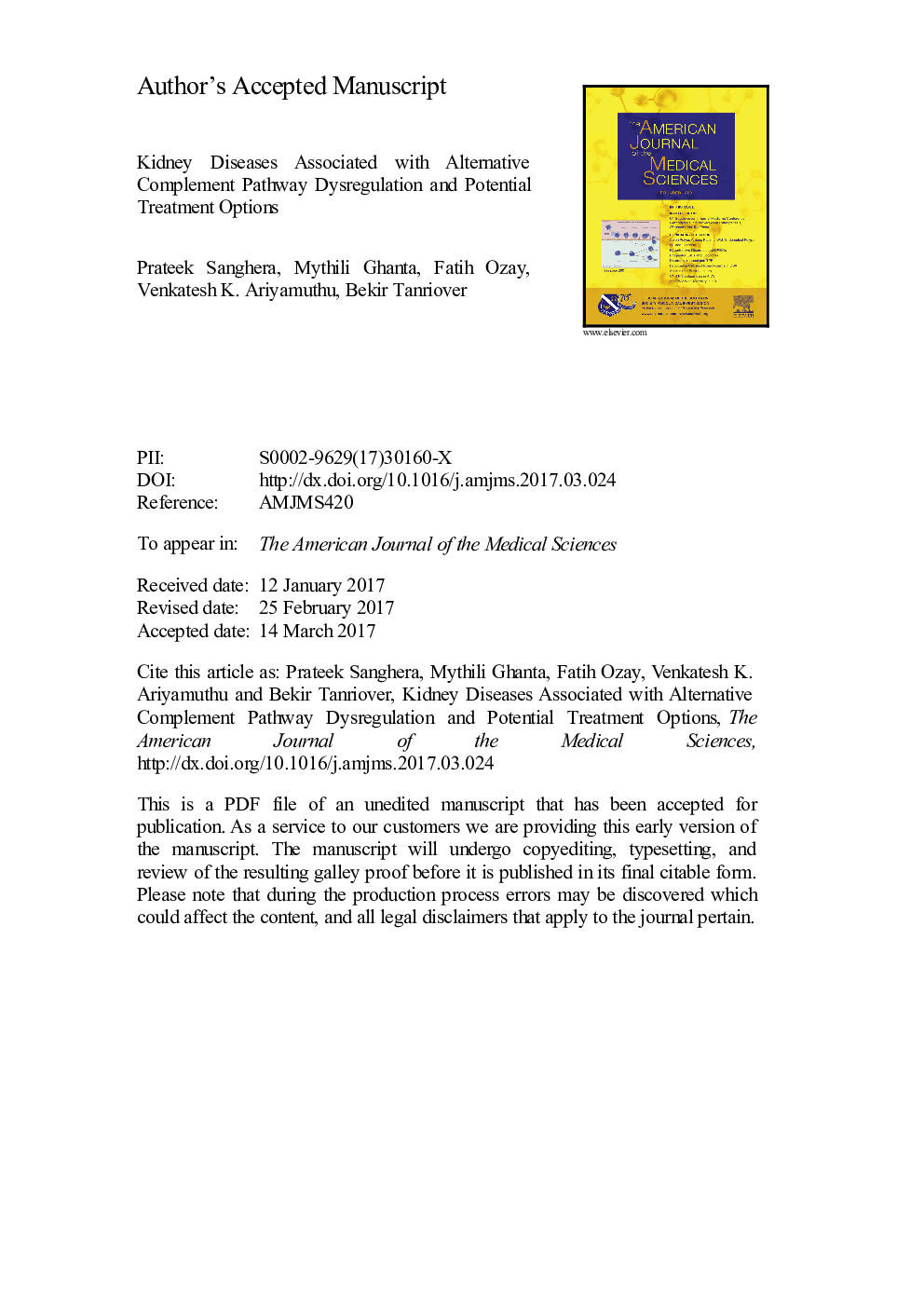| Article ID | Journal | Published Year | Pages | File Type |
|---|---|---|---|---|
| 8651841 | The American Journal of the Medical Sciences | 2017 | 18 Pages |
Abstract
Atypical hemolytic uremic syndrome and C3 glomerulopathy (dense deposit disease and C3 glomerulonephritis) are characterized as inappropriate activation of the alternative complement pathway. Genetic mutations affecting the alternative complement pathway regulating proteins (complement factor H, I, membrane cofactor protein and complement factor H-related proteins) and triggers (such as infection, surgery, pregnancy and autoimmune disease flares) result in the clinical manifestation of these diseases. A decade ago, prognosis of these disease states was quite poor, with most patients developing end-stage renal disease. Furthermore, renal transplantation in these conditions was associated with poor outcomes due to graft loss to recurrent disease. Recent advances in targeted complement inhibitor therapy resulted in significant improvement in disease remission, renal recovery, health-related quality of life and allograft survival.
Related Topics
Health Sciences
Medicine and Dentistry
Cardiology and Cardiovascular Medicine
Authors
Prateek MD, Mythili MD, Fatih MD, Venkatesh K. MD, Bekir MD, MPH,
